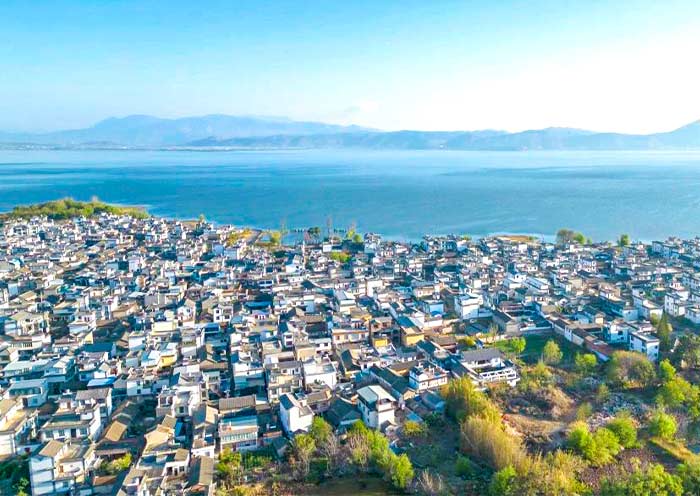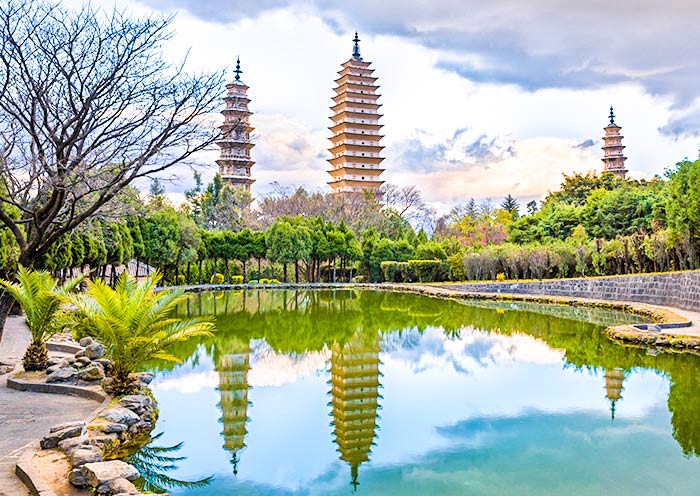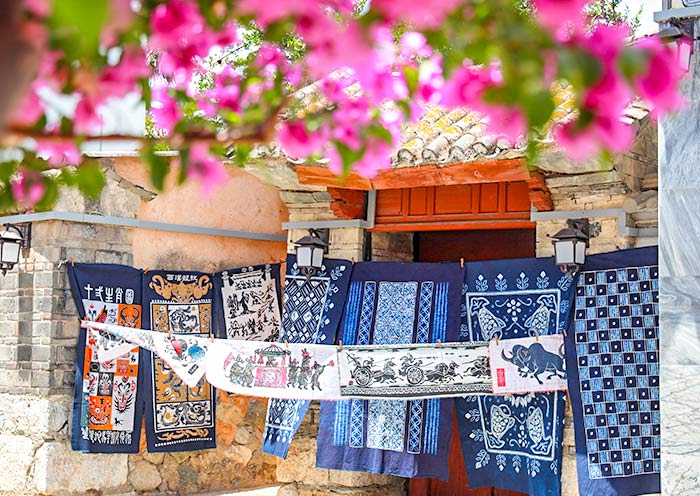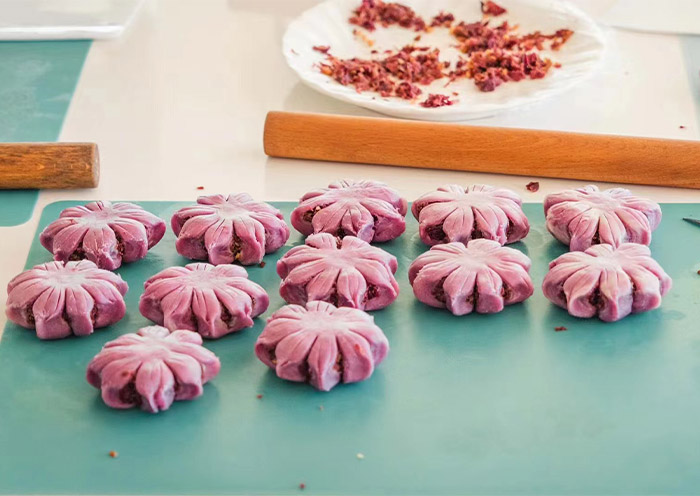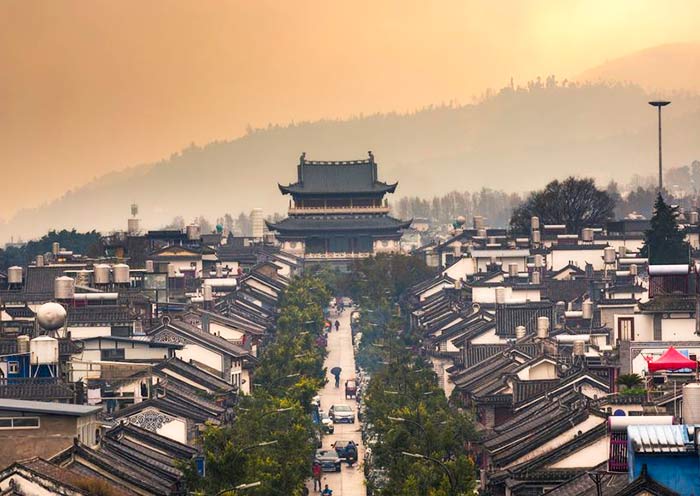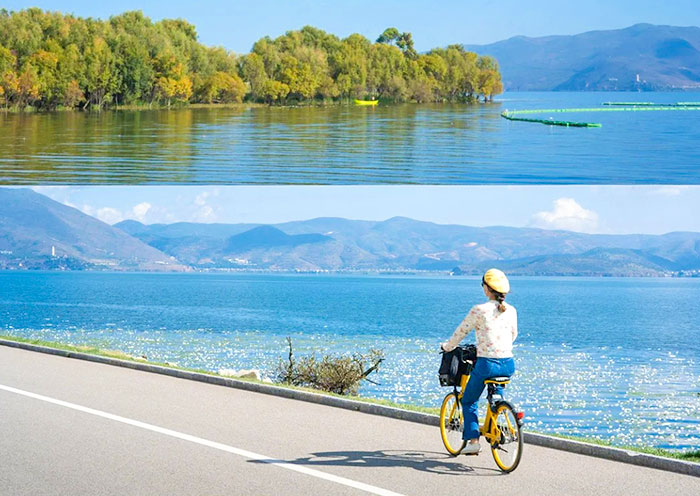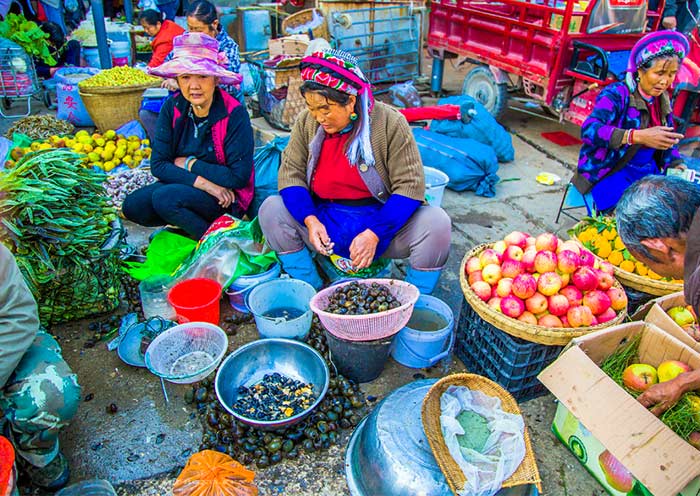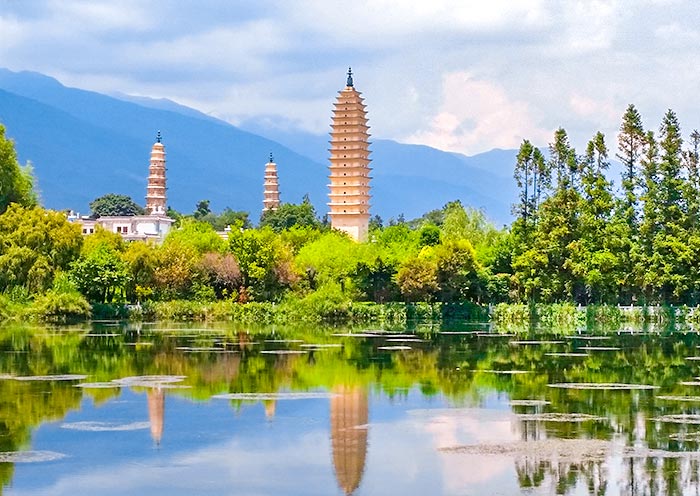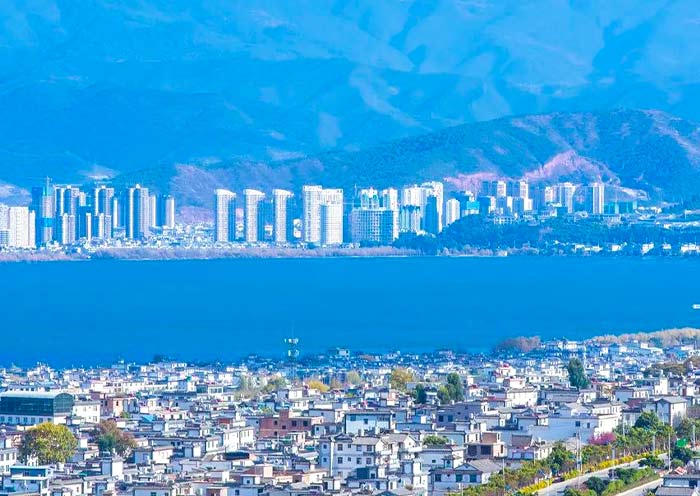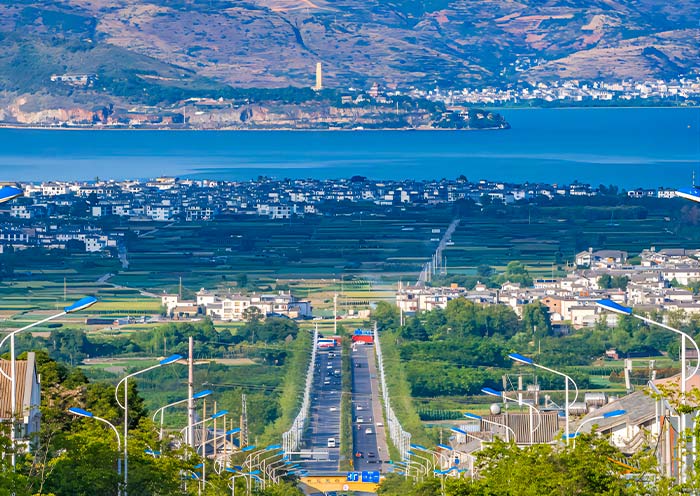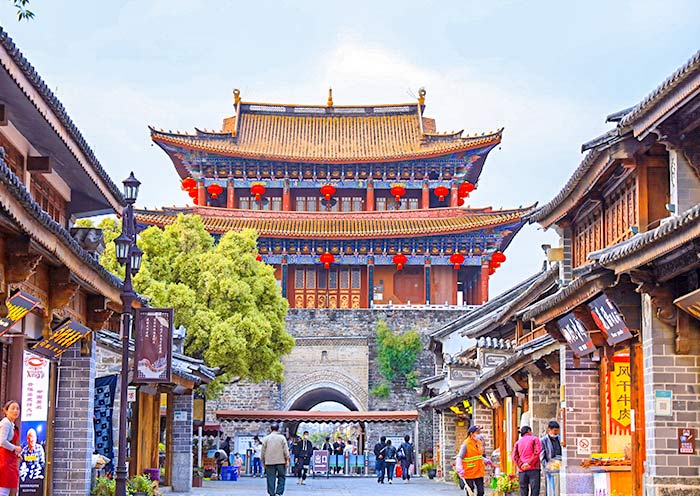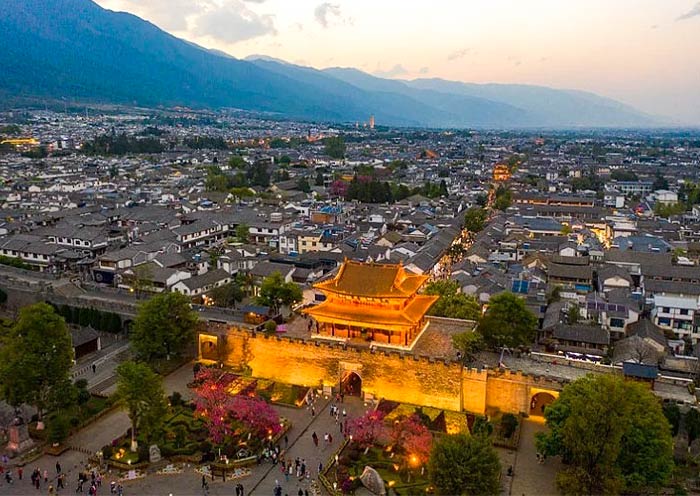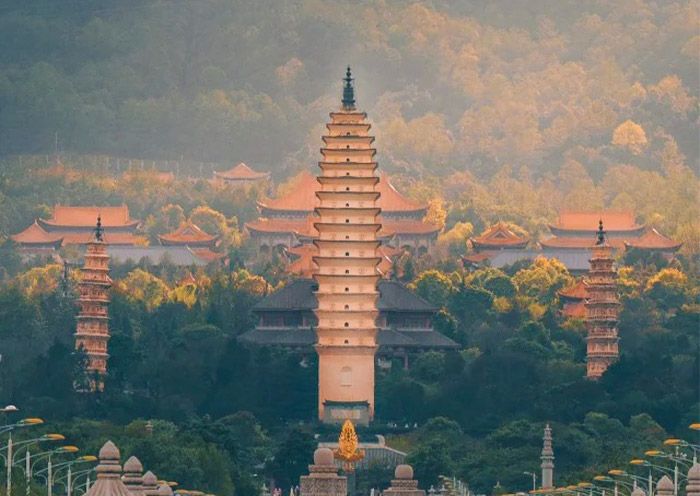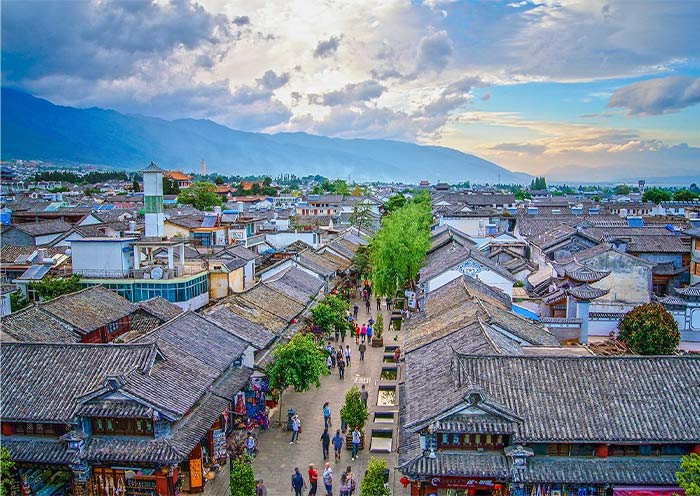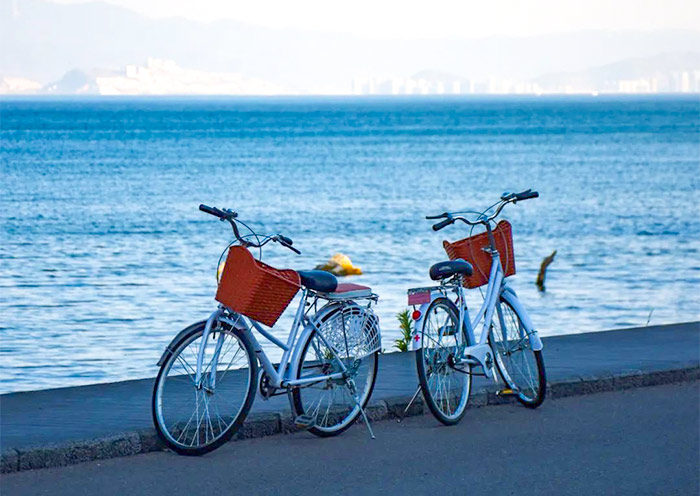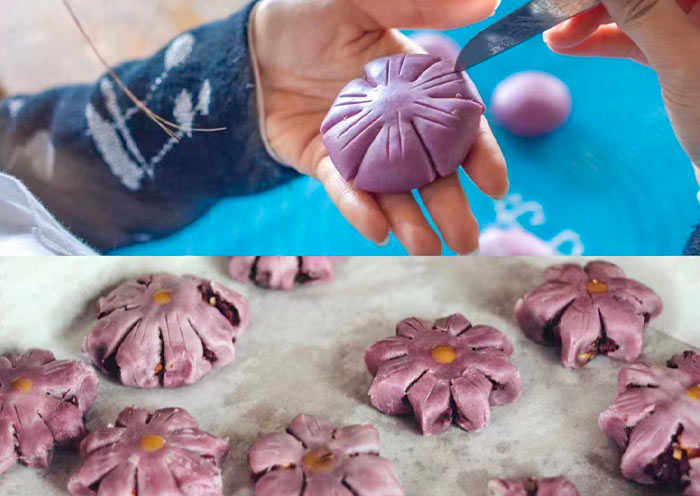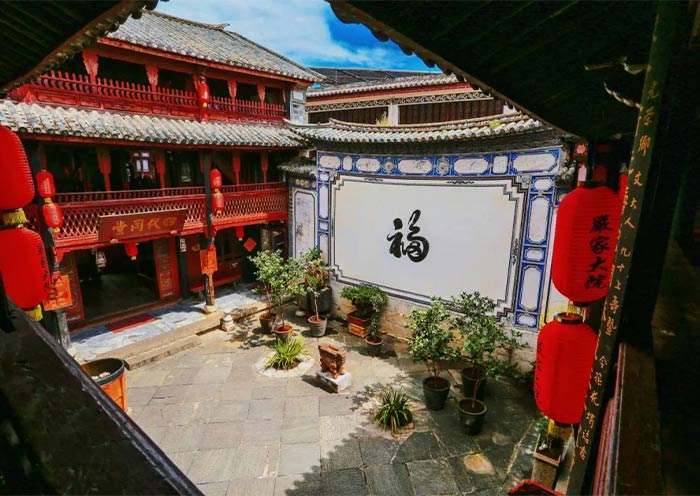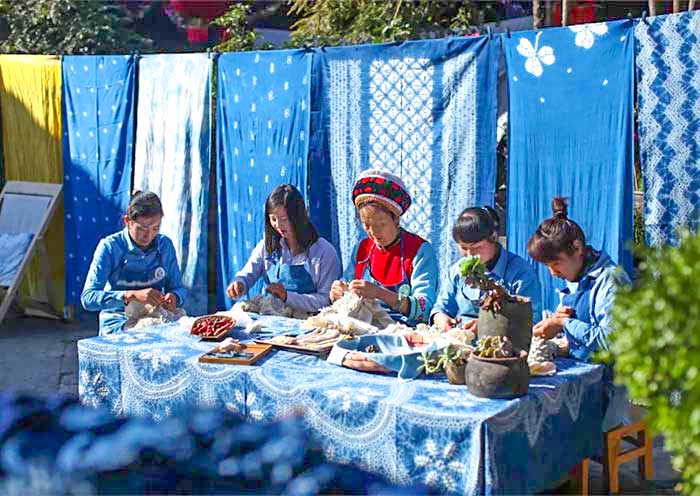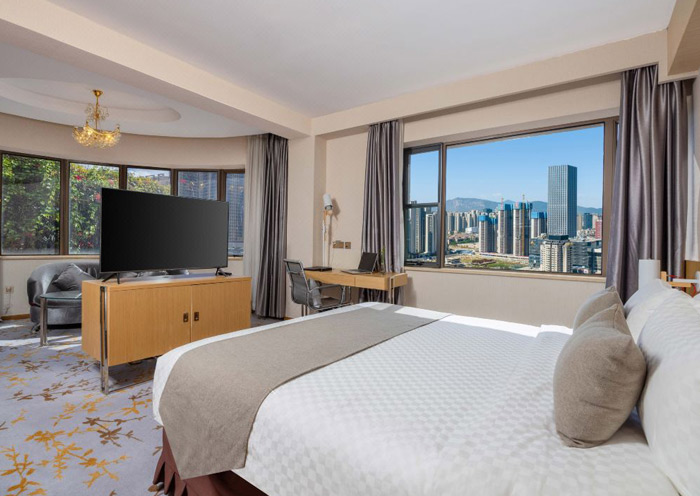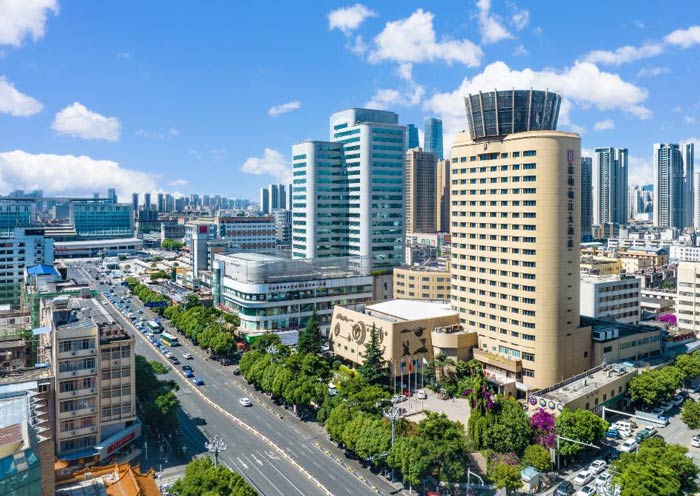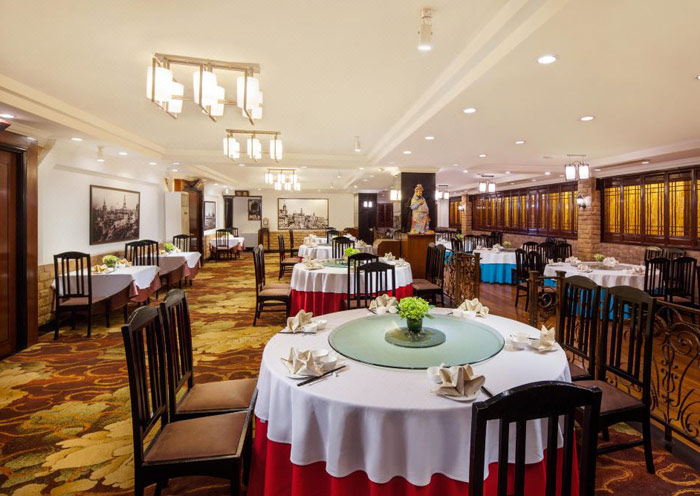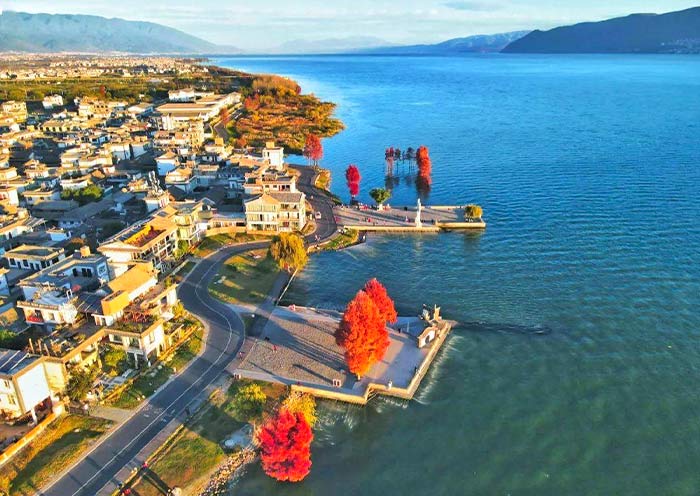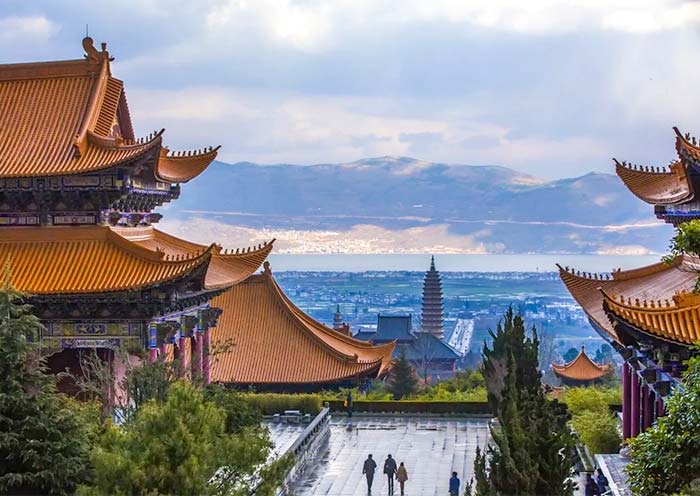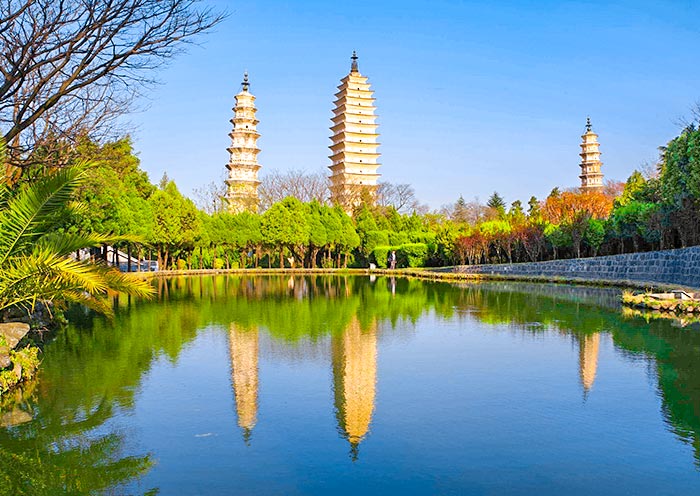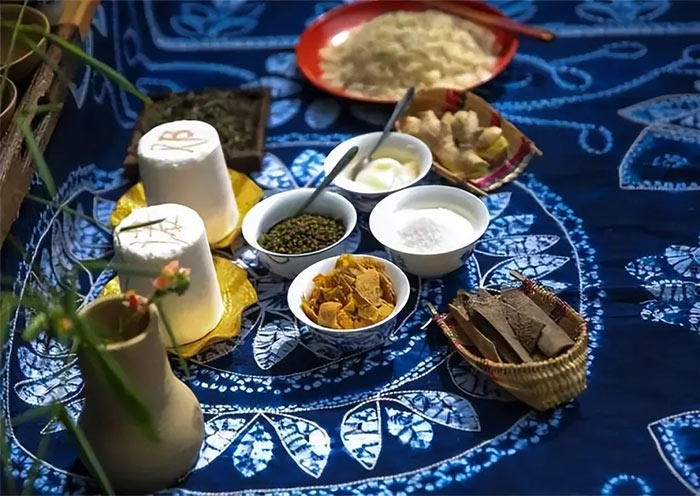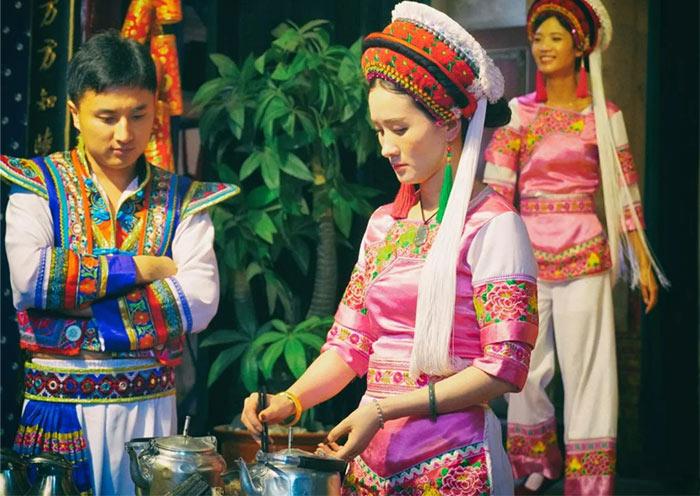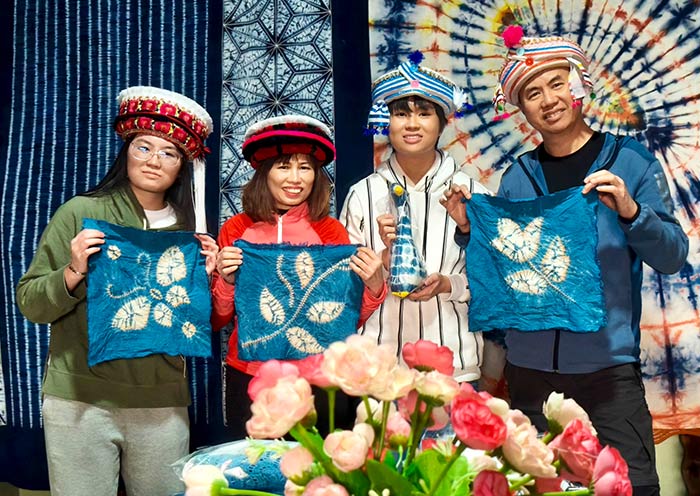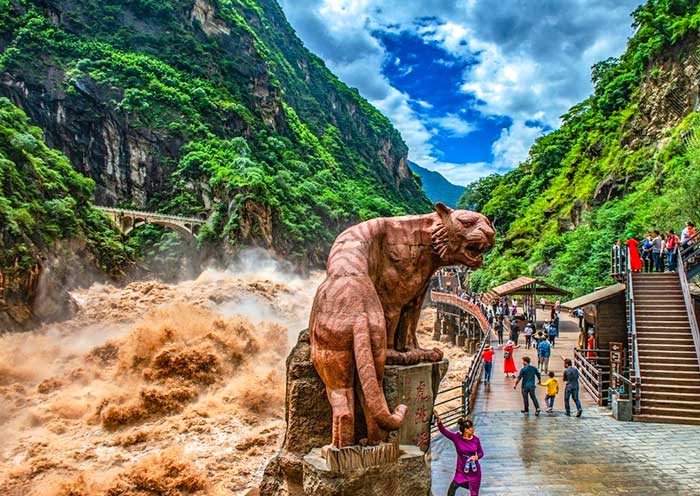After breakfast, embark on your morning visit to the Three Pagodas of Chongsheng Temple, a profound dive into the historical and spiritual heritage of Dali.
The Three Pagodas of Chongsheng Temple (崇圣寺三塔景区), majestically set against the backdrop of the Cangshan Mountains and overlooking Erhai Lake, are the iconic symbol of Dali. The three pagodas (三塔), located at the front part of the complex, consist of one larger pagoda, known as Qianxun Pagoda about 69 meters high, flanked by two smaller ones. According to local legends, Dali was once a swamp inhabited by dragons that caused natural disasters, the Three Pagodas were built to deter the dragons. Take your time to closely observe the architectural details and the craftsmanship that have enabled these structures to stand tall and unyielding through the centuries. Don't miss the beautiful reflection pond in front of the pagodas, which provide stunning reflective views of the structures, perfect for photography.
After visiting the pagodas, proceed to Chongsheng Temple (崇圣寺) just behind them. This temple once served as the royal temple of the Dali Kingdom of Nanzhao with the good reputation of being “the Capital of Buddhism”. It is also famous as Tianlong Temple in Jin Yong’s "Demi-Gods and Semi-Devils." As you follow your guide, you will explore various halls for worship, including the impressive Mahavira Hall, and enjoy the tranquil atmosphere of the temple grounds. From certain elevated points, you can enjoy sweeping panoramic views of the surrounding Cangshan Mountains and Erhai Lake.
After your temple visit, make your way to Dali Ancient Town (大理古城), often referred to as Dali Old Town, originally established during the Ming dynasty over 600 years ago, serving as the medieval capital of both the Nanzhao and Dali Kingdoms. Visitors can stroll through the ancient city and enjoy its unique sense of history and culture. The main streets of the ancient city, such as Renmin Road and Foreigner Street, have many well-preserved traditional Bai architecture and alleys to explore. Besides the Bai ethnic minority's traditional folk houses, the houses all with grey-green roof tiles, peculiar workshops, temples, schools, and churches with an antique flavor are scattered. The streets are lined with shops selling handmade crafts, including marbled paper, silver jewelry, and embroidered textiles. Perhaps try some regional dishes such as cold rice noodles, Erhai Lake fish, unique dairy products like Rushan cheese, etc.
In the afternoon, continue your journey with a leisurely bike ride along the west side of Erhai Lake (洱海). The name "Erhai" translates to "Ear-shaped Sea," reflecting its unique shape. It is the second-largest highland lake in the country and a key feature of the Dali Bai Autonomous Prefecture. As you pedal along the well-maintained lakeside path, the stunning views of the expansive blue lake waters bordered by the majestic Cangshan Mountains will leave you in awe. Along the route, you'll encounter quaint Bai villages, lush green fields, and vibrant flowers. The bike path offers numerous spots for you to pause and soak in the beautiful views, perfect for capturing memorable photographs.
Conclude your day with a flower cake-making workshop in the late afternoon set against the enchanting backdrop of a blossoming rose garden. This setting perfectly embodies Yunnan's reputation as the "Kingdom of Flowers." Here, you’ll have the opportunity to learn how to craft Yunnan Flower Cakes (鲜花饼), a beloved local delicacy made from a variety of edible flowers such as roses, jasmine, and osmanthus. During the peak rose season, from April to October, the garden is at its most vibrant, offering not only a visual feast but also filling the air with the sweet and alluring scents of fresh roses and other bloom.
After the tour, return to your hotel in Dali.
